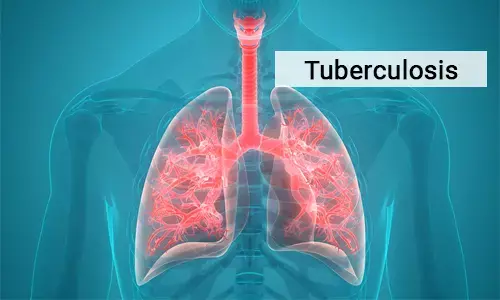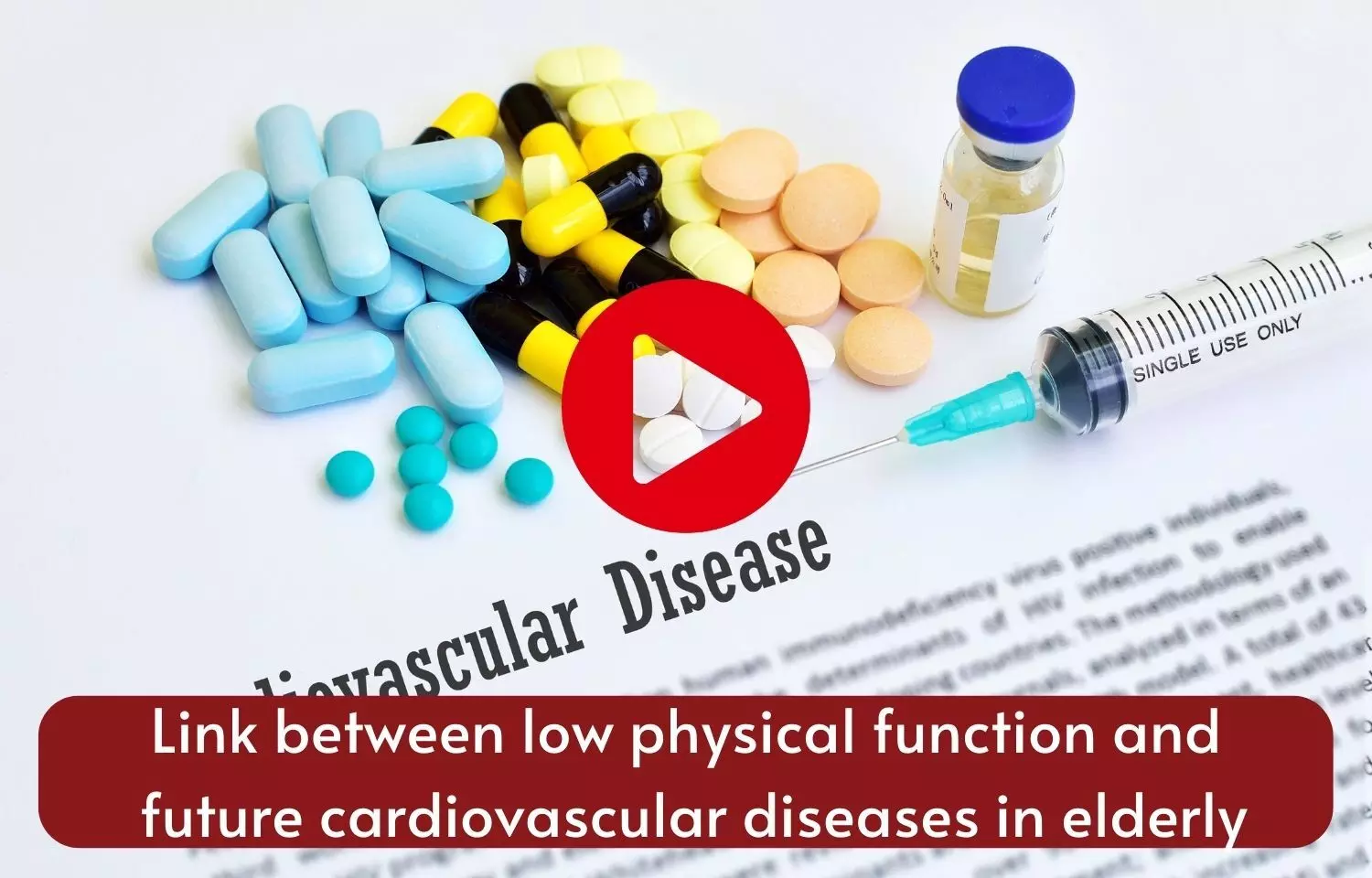- Home
- Medical news & Guidelines
- Anesthesiology
- Cardiology and CTVS
- Critical Care
- Dentistry
- Dermatology
- Diabetes and Endocrinology
- ENT
- Gastroenterology
- Medicine
- Nephrology
- Neurology
- Obstretics-Gynaecology
- Oncology
- Ophthalmology
- Orthopaedics
- Pediatrics-Neonatology
- Psychiatry
- Pulmonology
- Radiology
- Surgery
- Urology
- Laboratory Medicine
- Diet
- Nursing
- Paramedical
- Physiotherapy
- Health news
- Fact Check
- Bone Health Fact Check
- Brain Health Fact Check
- Cancer Related Fact Check
- Child Care Fact Check
- Dental and oral health fact check
- Diabetes and metabolic health fact check
- Diet and Nutrition Fact Check
- Eye and ENT Care Fact Check
- Fitness fact check
- Gut health fact check
- Heart health fact check
- Kidney health fact check
- Medical education fact check
- Men's health fact check
- Respiratory fact check
- Skin and hair care fact check
- Vaccine and Immunization fact check
- Women's health fact check
- AYUSH
- State News
- Andaman and Nicobar Islands
- Andhra Pradesh
- Arunachal Pradesh
- Assam
- Bihar
- Chandigarh
- Chattisgarh
- Dadra and Nagar Haveli
- Daman and Diu
- Delhi
- Goa
- Gujarat
- Haryana
- Himachal Pradesh
- Jammu & Kashmir
- Jharkhand
- Karnataka
- Kerala
- Ladakh
- Lakshadweep
- Madhya Pradesh
- Maharashtra
- Manipur
- Meghalaya
- Mizoram
- Nagaland
- Odisha
- Puducherry
- Punjab
- Rajasthan
- Sikkim
- Tamil Nadu
- Telangana
- Tripura
- Uttar Pradesh
- Uttrakhand
- West Bengal
- Medical Education
- Industry
Three drug regimen with Linezolid 600 mg tied to better outcomes in Drug-resistant TB: NEJM

The three-drug regimen with Linezolid at a dosage of 600 mg for 26 weeks has shown promising outcomes in drug-resistant Tuberculosis in 84-93% of participants as per new research. A favorable overall risk-benefit ratio was found, and a lower incidence of adverse events was reported. The study was published in the journal 'The New England Journal of Medicine.'
Literature shows that the bedaquiline–pretomanid–linezolid regimen has 90% efficacy against highly drug-resistant tuberculosis. Using 1200mg of Linezolid reported a high incidence of adverse events. As there is not much research on the appropriate dose of linezolid and duration of treatment with this agent to minimize toxic effects while maintaining efficacy against highly drug-resistant tuberculosis, researchers conducted a study to evaluate the same. Participants with extensively drug-resistant (XDR) tuberculosis, pre-XDR tuberculosis, or rifampin-resistant tuberculosis that was not responsive to treatment or for which a second-line regimen had been discontinued because of side effects had been enrolled in the study. All the participants were randomly assigned to receive bedaquiline for 26 weeks at a dosage of 200 mg daily for 8 weeks and then 100 mg daily for 18 weeks, pretomanid at a dosage of 200 mg daily for 26 weeks and daily linezolid at a dose of 1200 mg for 26 weeks or 9 weeks or 600 mg for 26 weeks or 9 weeks. Treatment failure or disease relapse either clinically or bacteriologically at 26 weeks after completion of treatment was measured as the primary endpoint in the intent to treat population. Safety was also evaluated.
Findings:
- A total of 181 participants were enrolled, 88% of whom had XDR or pre-XDR tuberculosis
- Among participants who received bedaquiline–pretomanid–linezolid with linezolid at a dose of 1200 mg for 26 weeks or 9 weeks or 600 mg for 26 weeks or 9 weeks,
Favorable outcome was seen in | 93%, 89%, 91%, and 84%, respectively, |
peripheral neuropathy occurred in | 38%, 24%, 24%, and 13%, respectively. |
myelosuppression occurred in | 22%, 15%, 2%, and 7%, respectively. |
linezolid dose was modified (i.e., interrupted, reduced, or discontinued) in | 51%, 30%, 13%, and 13%, respectively. |
- Optic neuropathy developed in 4 participants (9%) who had received linezolid at a dose of 1200 mg for 26 weeks; all the cases were resolved.
- Six of the seven unfavorable microbiologic outcomes through 78 weeks of follow-up occurred in participants assigned to the 9-week linezolid groups.
Take home message:
84 to 93% of the participants had a favorable outcome across all four treatment groups.
The overall risk-benefit ratio favored linezolid at a dose of 600 mg for 26 weeks.
Lower incidence of adverse events was reported, and fewer linezolid dose modifications were reported with linezolid at a dose of 600 mg for 26 weeks
Further reading: 10.1056/NEJMoa2119430
Conradie F, Bagdasaryan TR, Borisov S, et al. Bedaquiline–Pretomanid–Linezolid Regimens for Drug-Resistant Tuberculosis. New England Journal of Medicine. 2022;387(9):810-823. doi:10.1056/nejmoa2119430
BDS, MDS
Dr.Niharika Harsha B (BDS,MDS) completed her BDS from Govt Dental College, Hyderabad and MDS from Dr.NTR University of health sciences(Now Kaloji Rao University). She has 4 years of private dental practice and worked for 2 years as Consultant Oral Radiologist at a Dental Imaging Centre in Hyderabad. She worked as Research Assistant and scientific writer in the development of Oral Anti cancer screening device with her seniors. She has a deep intriguing wish in writing highly engaging, captivating and informative medical content for a wider audience. She can be contacted at editorial@medicaldialogues.in.
Dr Kamal Kant Kohli-MBBS, DTCD- a chest specialist with more than 30 years of practice and a flair for writing clinical articles, Dr Kamal Kant Kohli joined Medical Dialogues as a Chief Editor of Medical News. Besides writing articles, as an editor, he proofreads and verifies all the medical content published on Medical Dialogues including those coming from journals, studies,medical conferences,guidelines etc. Email: drkohli@medicaldialogues.in. Contact no. 011-43720751




